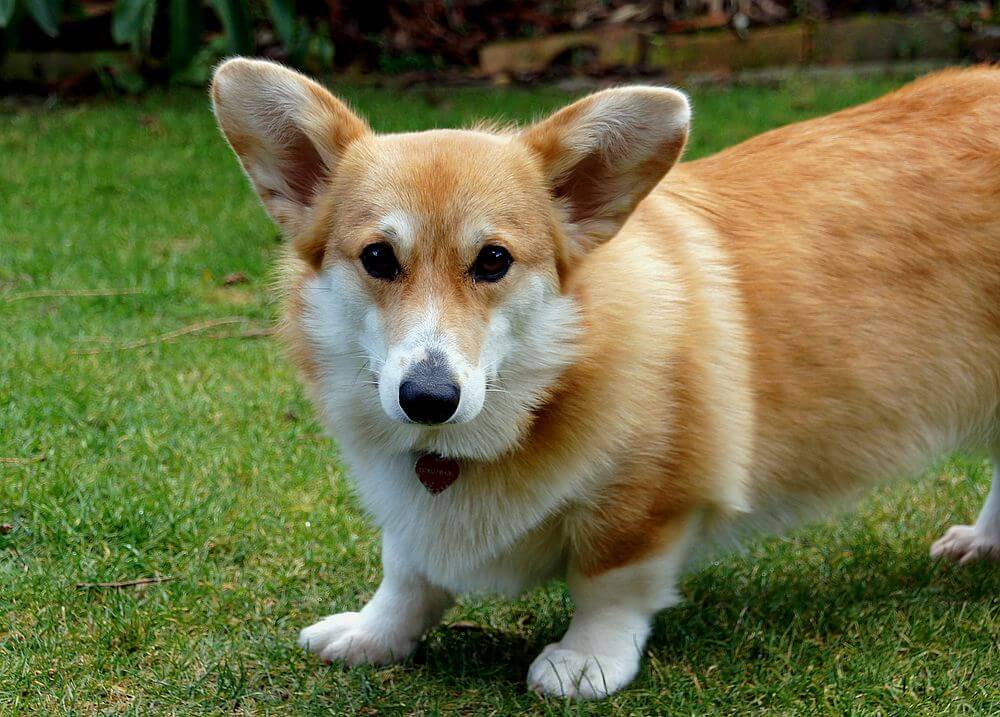Corgi Feeding Guide
Welcome to our Corgi Feeding Guide! Breeds of Corgis, such as the Pembroke and Cardigan varieties, are recognizable by their unusually small legs and lively dispositions.
While both types share many traits, the Pembroke is often more outgoing, while the Cardigan tends to be more reserved. Regardless of their differences, both breeds require a well-balanced diet to stay healthy.
Proper nutrition is crucial for maintaining your Corgi’s overall health and well-being. A balanced diet supports their energy levels, keeps their coat shiny, and helps prevent health issues. In this Corgi Feeding Guide, we will explore everything you need to know about feeding your Corgi.
From understanding their specific nutritional needs to choosing the right type of food and managing special dietary considerations, this guide aims to provide comprehensive and practical advice. By following these guidelines, you can ensure that your Corgi enjoys a happy and healthy life.
Understanding Corgi Nutritional Needs

Nutritional Requirements for Corgis
A diet of specific nutrients is essential to ensure your Corgi remains healthy and vibrant. Here’s a breakdown of what they need:
- Proteins: The building blocks of your Corgi’s body are proteins. They are essential for overall growth, tissue healing, and muscular development. High-quality protein sources, such as turkey, beef, chicken, and fish, should be a primary ingredient in your Corgi’s food. Protein should comprise a significant portion of their diet, typically around 20-30% of their food intake.
- Fats: Fats are a dense energy source and help maintain a healthy coat and skin. They also aid in absorbing fat-soluble vitamins (A, D, E, and K). Omega-3 and omega-6 essential fatty acids help create a glossy coat and overall well-being. Good fat sources include fish oil, flaxseed oil, and animal fats. Ideally, fats should constitute about 8-15% of their diet.
- Carbohydrates: Quick energy is provided by carbohydrates and supports digestive health. They assist in preserving steady blood sugar levels and provide fiber, aiding healthy digestion. Carbohydrates found in brown rice, sweet potatoes, and oats are beneficial. Carbs should make up around 30-50% of their diet, but choosing high-quality, easily digestible sources is important.
- Vitamins: Vitamins are vital for various body functions. Vitamin A supports vision and immune function; Vitamin K is necessary for blood clotting; Vitamin E is an antioxidant shielding cells from damage; and Vitamin D helps calcium absorption for healthy bones. A well-rounded diet should provide these vitamins appropriately, either from food or supplements.
- Minerals: Minerals like calcium, phosphorus, potassium, and magnesium are crucial for bone strength, nerve function, and overall health. Calcium and phosphorus are necessary to keep teeth and bones robust. Look for balanced ratios in your Corgi’s food, as health problems may result from using too much or too little.
Corgi Caloric Needs
Determining the right caloric intake for your Corgi involves considering several factors:
- Age: Puppies have higher energy needs due to their growth and development. They typically require more calories per pound of body weight compared to adults. As they mature, their caloric needs will decrease. Puppies generally need around 50-60 calories per pound of body weight, while adult Corgis require about 30-40 calories per pound.
- Weight: Your corgi’s weight influences the ideal caloric intake. Overweight Corgis need fewer calories to lose weight, while underweight Corgis require more to gain weight. Regularly monitor your Corgi’s weight and adjust their food intake to maintain a healthy weight.
- Activity Level: A Corgi’s activity level significantly impacts its caloric needs. Active Corgis that engage in regular exercise or play require more calories to sustain their energy levels. Conversely, a more sedentary Corgi will need fewer calories. Adapt their food intake to their exercise level to prevent weight gain or loss.
By carefully considering these nutritional and caloric needs, you can provide a balanced diet supporting your Corgi’s overall health, energy, and well-being.
Choosing the Right Dog Food for Corgis

Types of Dog Food for Corgis
When selecting food for your Corgi, you have several options. Each type has its pros and cons:
- Dry Kibble: Dry kibble is convenient and helps clean your Corgi’s teeth by reducing tartar buildup. It is also easy to store and measure. Look for high-quality brands with real meat as the first ingredient.
- Wet Food: Wet food is more palatable for many dogs and provides extra moisture to their diet, which can benefit hydration. However, it can be more expensive and less convenient to store than dry kibble.
- Raw Food: Raw food diets, also known as “BARF” (Biologically Appropriate Raw Food), include raw meat, bones, and vegetables. These diets can benefit some dogs but require careful preparation and balance to meet all nutritional needs.
- Homemade Diets: Homemade diets allow you to control the ingredients and avoid preservatives. Still, they must be carefully planned to ensure they are nutritionally complete and balanced. Speaking with a veterinarian or pet dietitian is recommended when preparing homemade meals.
Key Ingredients to Look For
Choosing the right dog food involves looking for quality ingredients:
- High-Quality Protein Sources: Look for real meat such as chicken, beef, lamb, or fish, listed as the primary components. These proteins are necessary for the growth of muscles and overall health.
- Healthy Fats: Essential fatty acids, like fish oil or flaxseed oil, help keep your Corgi’s coat shiny and support overall health. Ensure that the food includes sources of omega-3 and omega-6 fatty acids.
- Beneficial Additives: Ingredients like probiotics can aid digestion and support gut health. Vitamins and other antioxidants, like omega-3 fatty acids C and E, contribute to overall well-being.
Ingredients to Avoid
Avoiding certain harmful ingredients is crucial for your Corgi’s health:
- Fillers: Ingredients like corn, wheat, and soy are often used as fillers but offer little nutritional value. They can also cause allergies or digestive issues in some dogs.
- Artificial Preservatives: Look out for artificial preservatives such as BHA, BHT, and ethoxyquin, which can be harmful in the long term. Opt for foods with natural preservatives like tocopherols (vitamin E).
- Excessive Sugars: Foods high in sugar or with added sweeteners can contribute to obesity and dental issues. Avoid products with high sugar content and opt for those without added sugars.
By carefully choosing the right type of food and focusing on high-quality ingredients, you can ensure that your Corgi receives a balanced diet that supports their health and well-being.
Detail about Corgi Feeding Guide

Puppy Feeding Schedule
Corgi puppies have different feeding needs compared to adults. Here’s how to ensure they get the right nutrition:
- How Often to Feed: Puppies need more frequent meals due to their higher energy requirements and smaller stomachs. Feed your Corgi puppy three to four times each day. As a result, their energy levels remain steady and support growth.
- How Much to Feed: The amount of food your puppy needs depends on its age and size. Observe the feeding recommendations found on the dog food packaging, but a general rule is about 1-2 cups of food for each meal, split into its daily feeding schedule. As your puppy grows, adjust the portions and consult your vet for personalized advice.
Adult Corgi Feeding Schedule
Once your Corgi reaches adulthood, their feeding needs will change:
- Feeding Frequency: Adult Corgis should be fed twice a day. This prevents overeating and helps maintain steady energy levels.
- Portion Sizes: The amount of food your Corgi needs depends on weight, activity level, and the specific food you use. Generally, an adult Corgi needs about 1.5 to 2.5 cups of food daily, divided into two meals. Always refer to the feeding recommendations on dog food containers and adjust them based on your dog’s needs and body condition.
Senior Corgi Feeding Needs
As Corgis age, their dietary needs can change. Here’s how to adjust their diet:
- Caloric Intake: Older Corgis are often calories to keep from gaining weight. Keep an eye on their weight and modify their food intake if necessary.
- Nutrient Adjustments: Senior Corgis might benefit from food that is easier to digest and includes joint-supporting nutrients like glucosamine and chondroitin. Look for foods specifically formulated for senior dogs, which often contain higher fiber and lower fat.
- Health Monitoring: Monitor any changes in your Corgi’s health, such as dental issues or reduced appetite. Regular vet check-ups are essential to tailor their diet to specific health needs.
By following these feeding guidelines, you can help ensure that your Corgi, whether a puppy, adult, or senior, receives the appropriate nutrition for their stage of life.
Special Dietary Considerations

Dealing with Corgi Allergies
Corgis, like many dogs, can have food allergies or sensitivities. Here’s how to manage them:
- Common Allergies: Some Corgis may be allergic to ingredients like beef, chicken, dairy, or grains. Food allergies can cause ear infections, itching, other symptoms, and digestive upset.
- Identifying Allergies: If you suspect your Corgi has a food allergy, try an elimination diet. Start by feeding them a hypoallergenic food with limited ingredients and gradually introduce new foods one at a time to identify the allergen.
- Managing Allergies: Once you identify the allergen, avoid foods containing that ingredient. Choose hypoallergenic or limited-ingredient diets that are designed to reduce allergic reactions.
Managing Corgi Weight and Obesity
You must keep a healthy weight for your Corgi’s overall health. Here’s how to manage their weight:
- Portion Control: Observe the feeding recommendations on the food packaging, but adjust portions based on your Corgi’s weight and activity level. Avoid overfeeding and be cautious of treats.
- Regular Exercise: Ensure your Corgi gets regular exercise to help burn calories. Daily walks and playtime are important for keeping them active and healthy.
- Monitoring Weight: Regularly check your Corgi’s weight and body condition. If they gain weight, reduce their food intake slightly and increase exercise. Consult your vet for personalized advice if weight issues persist.
Special Diets for Corgis with Health Conditions
Certain health conditions require specific dietary adjustments:
- Diabetes: Corgis with diabetes need a diet that helps control blood sugar levels. Foods high in fiber can aid with blood sugar regulation and manage weight. Avoid foods high in sugars and simple carbohydrates.
- Kidney Disease: For Corgis with kidney disease, a diet lower in protein and phosphorus can help reduce the strain on their kidneys. Foods designed for kidney health often have controlled levels of these nutrients.
- Consult Your Vet: Always work with your veterinarian to create a diet plan tailored to your Corgi’s health condition. They can recommend appropriate foods and supplements to support their health.
By addressing these special dietary considerations, you can help manage your Corgi’s health conditions effectively and ensure they maintain a good quality of life.
Homemade and Raw Diets for Corgis

Benefits and Risks of Homemade Diets
Preparing homemade food for your Corgi can have its advantages, but it also comes with challenges:
- Benefits:
- Control Over Ingredients: You have complete control over what goes into your Corgi’s food, allowing you to avoid allergens and fillers.
- Customization: You can tailor the diet to meet your Corgi’s needs, including adding supplements or adjusting ingredients for health conditions.
- Quality Assurance: Using high-quality, fresh ingredients ensures your Corgi gets nutritious and wholesome meals.
- Risks:
- Nutritional Balance: Creating a balanced diet that meets your Corgi’s nutritional needs can be challenging. Without proper knowledge, you might miss essential nutrients.
- Preparation Time: Making homemade dog food can be time-consuming and requires careful planning and preparation.
- Cost: High-quality ingredients can be expensive, making homemade diets pricier than commercial dog foods.
Raw Diet Considerations
Feeding a raw diet to your Corgi, also known as a BARF (Biologically Appropriate Raw Food) diet, involves feeding raw meat, bones, and vegetables. Here’s what to consider:
- Potential Benefits:
- Improved Coat and Skin: Many owners report a shinier coat and healthier skin when feeding raw food.
- Better Digestion: Raw diets can lead to healthier digestion and smaller, less smelly stools.
- Increased Energy: Some dogs show increased energy levels and better overall vitality on a raw diet.
- Safety Concerns:
- Nutritional Balance: Maintaining a healthy diet can be tricky. Raw diets must include a variety of proteins, vegetables, and supplements to meet all of your Corgi’s nutritional needs.
- Risk of Contamination: Raw meat can carry bacteria like Salmonella or E. coli, which poses risks to your dog and the household’s humans. Proper food handling and hygiene are crucial.
- Bone Hazards: Raw bones can splinter and cause choking or digestive blockages. Providing safe and appropriate bones for your dog’s size and chewing ability is important.
By weighing the benefits and risks of homemade and raw diets, you can decide what’s best for your Corgi’s health and well-being. If you choose either option, it’s wise to consult your veterinarian to ensure your Corgi’s diet is balanced and safe.
Transitioning Your Corgi to a New Diet
How to Safely Transition Foods
Switching your Corgi to a new diet should be done gradually to avoid digestive issues. Here’s a step-by-step guide:
- Start Slowly: Mix a small amount of the new food with your Corgi’s current food. Start with 25% of the new and 75% of the old food.
- Gradually Increase: Over the next 7-10 days, slowly increase the amount of the new food while decreasing the old food. For example, switch to 50% new and 50% old food after a few days.
- Monitor Tolerance: Observe your Corgi’s reaction to the new food. If they seem to adjust well with no signs of digestive upset, continue gradually increasing the new food.
- Complete the Transition: By the end of the transition period, you should feed 100% of the new food. Ensure your Corgi is fully accustomed to the new diet before making additional changes.
Monitoring Your Corgi’s Health During Transition
Keep an eye out for any indications of stomach problems or pain during the transition period:
- Digestive Issues: Watch for changes in your Corgi’s stool, such as diarrhea, constipation, or an upset stomach. Mild changes are normal, but if issues persist, consult your vet.
- Behavioral Changes: Watch for changes in your Corgi’s behavior, like fatigue or appetite loss. If they seem unusually uninterested in food or sluggish, there might be a problem with the new diet.
- Adjusting the Diet: If your Corgi shows persistent signs of discomfort or digestive upset, consider slowing down the transition process. Alternatively, you may need to choose a different food that better suits their needs.
- Consult Your Vet: If problems continue or you’re unsure about the best approach, seek advice from your vet. They can assist in figuring out if the novel food is appropriate and suggest modifications.
By following these steps, you can help ensure a smooth transition to your Corgi’s new diet, minimize the risk of digestive issues, and support your overall health.
Conclusion
Summary of Key Points in the Corgi Feeding Guide
To keep your Corgi healthy:
- Nutritional Needs: Ensure a balanced diet with proteins, fats, carbs, vitamins, and minerals.
- Types of Food: Choose between dry kibble, wet food, raw diets, or homemade meals.
- Feeding Schedules: Adjust meals for puppies, adults, and seniors based on their needs.
- Special Considerations: Manage allergies, weight, and health conditions with appropriate diets.
- Transitioning Foods: Gradually switch to new food and monitor your Corgi’s health.
Encouragement to Consult with a Veterinarian
For the best results, consult your vet for personalized advice to meet your Corgi’s specific needs and ensure their diet supports their overall health.
FAQs on Corgi Feeding Guide
How much should I feed my Corgi?
Feed your Corgi based on their age, weight, and activity level. They should generally receive about 1.5 to 2.5 cups of food daily, divided into two meals.
What is the best food for Corgis?
High-quality dog food that starts with real meat and is balanced with proteins, fats, and essential nutrients is best for Corgis.
How do I transition my Corgi to a new diet?
Gradually mix the new food with the old over 7-10 days, increasing the new food and monitoring for any digestive issues.
YOU MAY ALSO LIKE:
Boxers Allergies and Skin Allergy Guide
Is Iams a Good Dog Food
Can Adult Dogs Eat Puppy Food
What is Chicken Meal in Dog Food
What is The Best Meat for Dog Food
Is Blue Buffalo Good Dog Food
Complete Guide to How Much Fresh Food to Feed a Dog
How Much Food for 60 lb Dog
How much Cesar Dog Food to Feed
How good is blue buffalo dog food
How Expensive is Farmer’s Dog Food
How Long is Canned Dog Food Good for After Opened
How Long Does a Bag of Dog Food Last
How Much Does Sundays Dog Food Cost
How to choose the best dog food for Huskies
How Much Does Cup of Dog Food Weigh
How to Treat Dog Food Poisoning at Home
How Much is Sunday’s Dog Food?
How Much is Ollie Dog Food in a Month?
How to Choose Dog Food
How Much Pumpkin to Add to Dog Food
How Much Does Farmers Dog Food Cost?
How Long Can Wet Dog Food Sit Out?
How to Soften Dog Food
How to Keep Dogs Out of Cat Food
How to Give Dog Pills Without Food
How to Get my Dog to Eat Dry Food
How to Keep Ants Out of Dog Food
How Much Does Dog Food Cost
How Long to Soak Dog Food
How Much Homemade Dog Food to Feed
How Much Wet Food to Feed a Dog
How to Transition Dog Food
How to Stop Food Aggression in Dogs Towards Other Dogs
How many cups of food should I feed my dog?
How to Stop Food Aggression in Dogs
How Many Cups in a Pound of Dog Food
How Long Does it Take a Dog to Digest Food
Why is My Dog Always Hungry
How Much Protein is in Dog Food?
How to Make Dog Food
how long to feed dog puppy food
What is The Cost to Make Homemade Dog Food?
How to Make Homemade Raw Dog Food
How to Make Homemade Dry Dog Food
How to Prepare Dog Food at Home for Senior Dogs
How to Train a Dog That is Not Food-Motivated
How Much Food Should I Feed
How To Store Dog Food
How Much Time Can a Dog Survive Without Consuming Water

